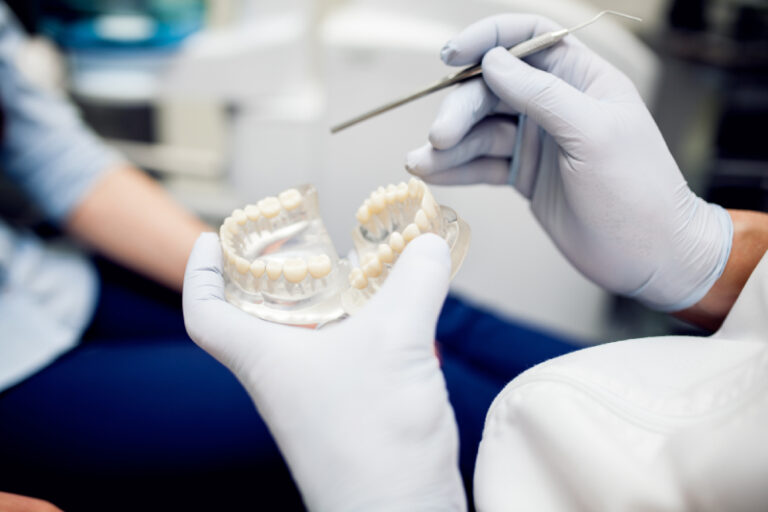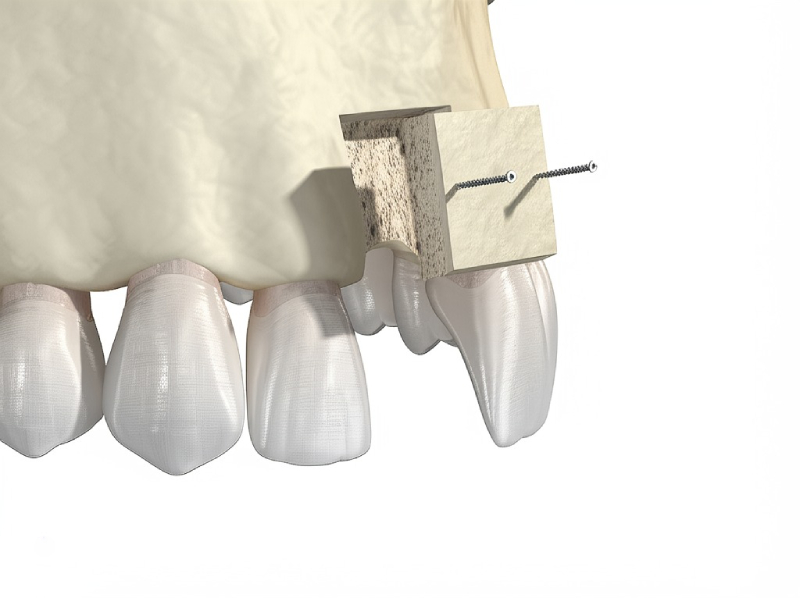
Premier Dental Implant Surgery in Maryland: Your Guide to a Lasting Smile
Table of Contents
Introduction
I still remember the first dental implant surgery I helped with right here in Maryland. I saw, up close, how it changed a patient’s life—not just their smile but their confidence, comfort, and even the foods they could eat again. If you’re reading this, you might be looking at your choices, searching for a specialist in “Dental Implant Surgery.MD,” and wondering what makes one provider different from the next. I’ve been through this myself, both as a patient and as part of a caring dental team, and I want to share what I’ve learned to help you make a good, confident choice.
Dental implants have really changed what’s possible after tooth loss. But getting them is a big decision and finding the right oral surgeon or specialist in Maryland makes all the difference. With this guide, I’m here to give you simple answers, insider tips, and clarity about what you should expect—everything from costs and doctors’ credentials to the step-by-step process and how to know if you’re a good fit. Let’s walk through it together.
Why Choose a Specialist for Dental Implants in Maryland?
When I started looking into dental implants, I quickly learned that not all providers give the same kind of care. In Maryland, you’re in luck because the dental community has lots of great professionals. But here’s why you want a board-certified specialist for your procedure.
The Role of the Oral and Maxillofacial Surgeon (OMS)
If you want the highest levels of safety and skill, look for an Oral and Maxillofacial Surgeon. In my own journey, I learned that OMSs do much more than “general dentistry.” These surgeons spend as much as six years in training after dental school—often earning both a dental degree (DDS or DMD) and a medical degree (MD). That’s a lot of letters, but it’s not just there to look good. It means your surgeon can handle tough surgical cases, manage sedation, and fix jawbone problems safely.
When I visited my surgeon’s office in Bethesda, MD, and saw all those diplomas and certificates, I felt sure I was in the right place. OMSs often do tricky procedures like bone grafting and sinus lifts, which sometimes go along with dental implants—especially if you’ve been without teeth for a while.
The Role of the Periodontist
When gum health matters most, I look to periodontists. These dental specialists focus on gums and the bone that supports your teeth, which are very important for successful dental implants. My friend in Columbia, MD, will always recommend her periodontist, especially after a bad case of gum disease almost cost her more teeth. Periodontists are trained to restore both gums and bone, which really improves the chances your implant will last for years.
Board Certification: The Gold Standard in Implantology
One thing I won’t cut corners on—board certification. I learned the hard way that this is more than just a fancy title. Board-certified oral surgeons or periodontists have passed tough exams, keep learning, and stick to the safest best practices. It’s a sign of quality and responsibility.
In Maryland, look for people approved by the American Board of Oral and Maxillofacial Surgery (ABOMS) or the American Board of Periodontology (AAP). When you see those groups, you’re working with someone who’s been checked out thoroughly.
The Dental Implant Process at Our Maryland Practice: A Step-by-Step Journey
The first time I looked into dental implants, I thought the process was kind of overwhelming. That’s why I want to explain every stage here, using my own experience and what I’ve seen in the dental office.
Step 1: Your Initial Consultation and 3D Imaging (CBCT Scan)
Everything starts with a check-up. At our practice in Baltimore (and at other good Maryland offices), the first thing I do is set up a full evaluation. We look at your health history, review any past dental work, and—my favorite part—use 3D Cone Beam CT scans. This gives a much better look at your jaw and sinuses than a regular x-ray.
I remember being a bit nervous before my first CBCT scan, but it was fast and totally painless. And the info it gave was amazing—my doctor could plan the implant down to the tiniest detail. If you’re in an office and they don’t have this tech, ask why—they may not be up with the times.
Step 2: The Implant Placement Surgery
On surgery day, I got nervous, but good sedation and a calm dentist can make all the difference. Most Maryland offices—especially the ones run by oral surgeons or periodontists—offer modern sedation choices, from light pills to IV sedation. I picked IV sedation and slept through the whole thing. No pain, no worries.
The doctor makes a small hole in the gum and puts a titanium or zirconia post in your jawbone. For me, the whole thing for one implant took less than an hour. For tougher cases, like several implants or “All-on-4” (which uses four posts for a full denture), it can take a bit longer.
Step 3: Healing and Osseointegration
After surgery, you’ll hear the word “osseointegration” a lot. That’s when your bone grows around the implant, holding it tight. I thought I’d be in pain, but I only felt a bit of swelling and soreness, which over-the-counter pain meds controlled just fine. Healing usually takes three to six months depending on your bone strength and if you needed a bone graft.
Insider tip: Don’t rush this part! I got impatient, but my doctor reminded me—good osseointegration means a stronger, longer-lasting implant.
Step 4: Placing the Abutment and Your Final Crown
Once the post is firmly in your jaw, it’s time for the abutment and crown. This was the finish line for me. The abutment connects the post to the visible “tooth,” which the dentist makes to match your other teeth. The appointment is short—just some fitting and adjusting—and then I left that day with a new tooth that looked and felt just like the real thing.
For full arch replacements like All-on-4® or implant-retained dentures, this last step can make the biggest difference—patients who struggled with loose dentures for years now have teeth that feel solid.
What is the Cost of Dental Implant Surgery in Maryland?
One of my big questions was, “How much do dental implants really cost?” Here’s what you can expect in Maryland, based on what I found and what patients tell me.
Factors Influencing Your Total Investment
The cost depends on a few things. Here’s a list I wish someone gave me from the start:
- Number of implants needed: One implant costs less than a few or a full mouth.
- Need for bone grafting or sinus lifts: If you’ve lost bone, you may need these, and they cost extra but are often needed for success.
- Material type: Titanium is most common and affordable; zirconia, which has no metal, can cost more.
- Type of final restoration: A single crown, a bridge, or a full set of dentures all have their own prices.
- Location: Offices in busy Maryland towns (like Bethesda, Columbia, or Annapolis) may cost more than those in smaller towns.
Average Cost Range in the MD/DC/VA Area
After asking around and talking with many people, I learned a single implant (with placement, abutment, and crown) in Maryland usually runs between $3,500 and $6,000. Full-mouth implant setups like All-on-4 can go from $25,000 up to $90,000 and more. It’s not cheap, but these are made to last for decades—maybe your whole life.

Insurance Coverage and Financing Options in Maryland
Here’s the deal—most dental insurance doesn’t pay for implants themselves, but some might help with the crown or needed bone grafting. Always check the details. Maryland offices often work with outside finance companies like CareCredit, so you can pay month by month. In my office, we explain what’s included up front, so you don’t get surprise bills.
My advice: ask for a full cost breakdown and payment plan before you start. It saved me a lot of guessing.
Our Dental Implant Solutions
After years in dental care, I’ve seen just about every implant choice out there in Maryland. Here’s what you’ll often find, with some extra tips from my experience.
- Single Tooth Replacement: Good when you lose just one tooth. Quick, simple, and the new tooth fits right in with the rest. My own single implant still works great years later.
- Multiple Teeth Replacement (Implant-Supported Bridge): Got a few teeth missing in a row? A couple of implants can hold a solid bridge in place.
- Full Arch Replacement: Choices like All-on-4® or implant-retained dentures—for those needing a full new set of teeth that won’t slip or slide.
I’ve seen patients cry happy tears after getting these full arch solutions. It truly changes lives.
Are You a Good Candidate for Dental Implants?
Wondering if implants are right for you? Here’s the list I use with every patient in Maryland:
- Missing one or more teeth? Implants might be your best pick.
- Jawbone strength: Do you have enough bone? Are you willing to get a bone graft if you need one?
- Overall health: Being healthy helps healing. If you have health issues, talk to your dentist about them.
- Smoking: Smoking lowers success. If you smoke, try to quit or prepare for a tougher road.
- Oral hygiene: You need to brush, floss, and visit your dentist often to keep your implant healthy.
Don’t count yourself out! New technology means more people can get implants—even those with tricky dental problems in the past.
Frequently Asked Questions about Dental Implants in MD
I’ve heard almost every question out there about implants. Here are the big ones:
Is the surgery painful?
Not for me. With local anesthesia, sedation, or IV sleep medicine, you’ll barely feel a thing during the surgery. Afterward, most folks only have a little aching and swelling, easily helped with regular pain pills.
How long is the recovery?
Most people go back to work or daily life in a day or two. The implant itself takes 3-6 months to fully heal.
What is the success rate of your implants?
Top Maryland dentists see about 95-98% success even ten years down the line. People who smoke or have some health issues may have a slightly lower rate, but most still do well if they take care.
How long do dental implants last?
With good care, the implant post should last forever. The crown usually lasts 10-15 years or more depending on how you use it.








